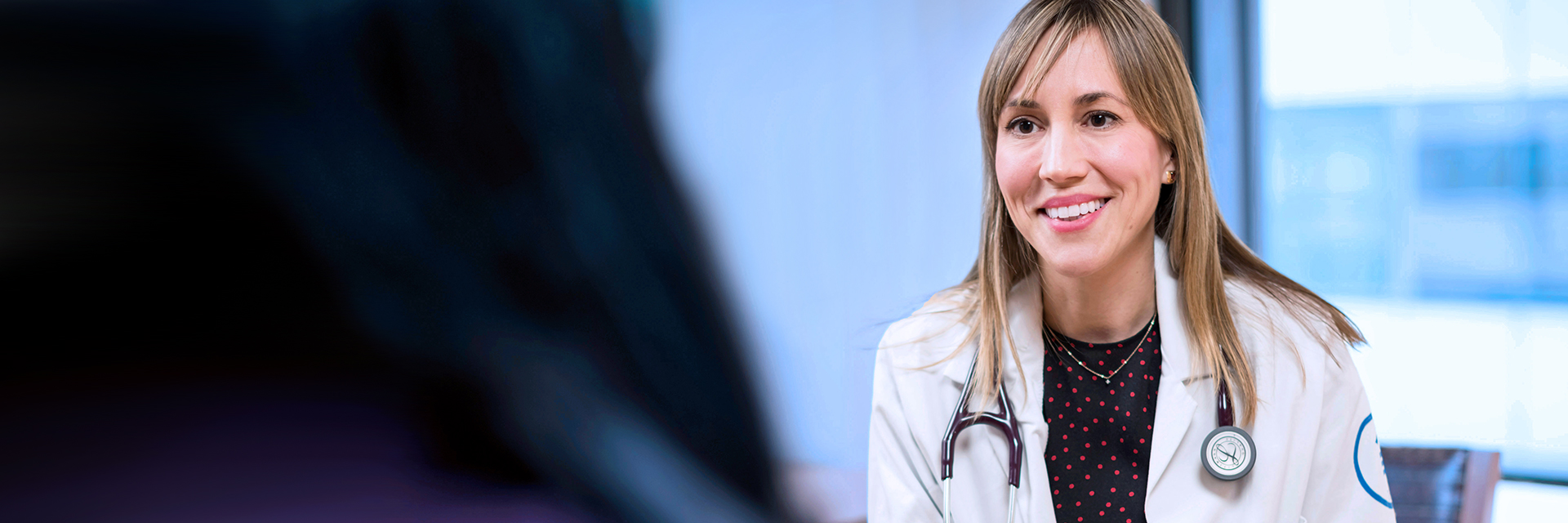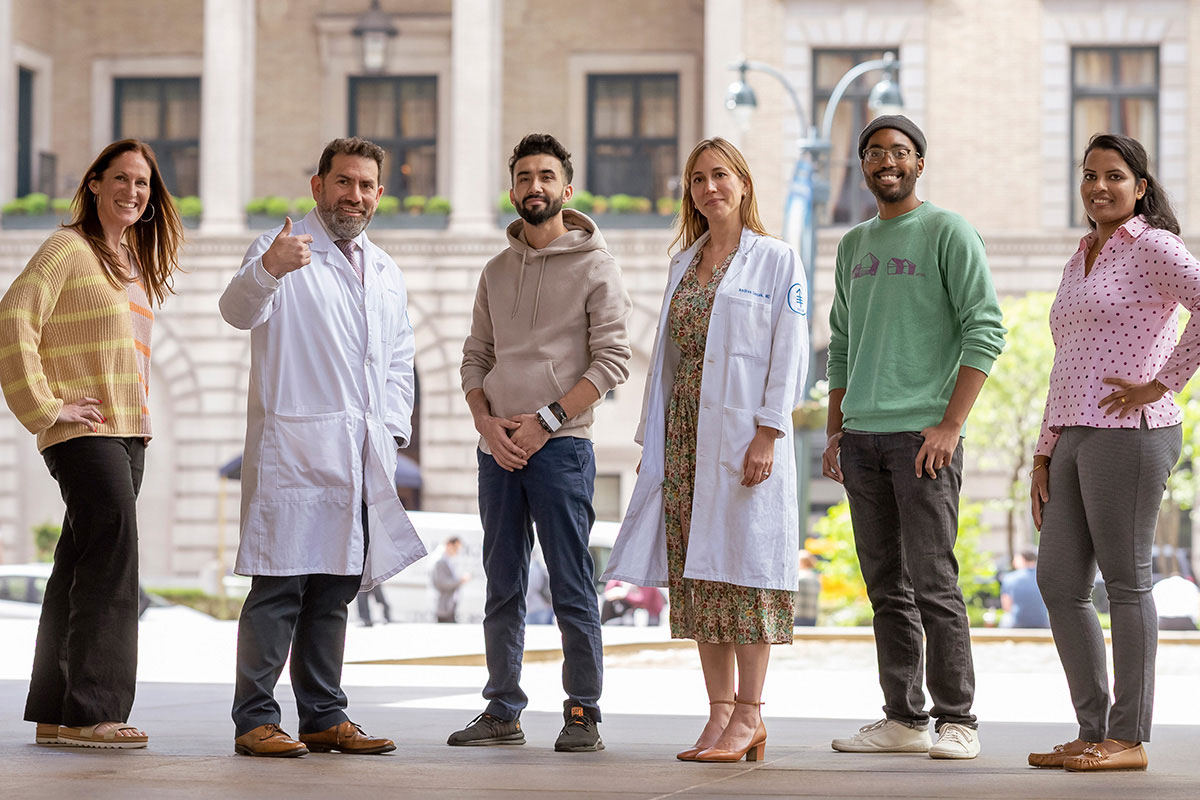
If you or someone you care about is younger than 50 and has been diagnosed with colorectal cancer or other gastrointestinal cancers, you may be worried and confused. At Memorial Sloan Kettering Cancer Center (MSK), you will be cared for by doctors who understand how this disease affects you personally, and who will treat you with the most advanced surgical techniques and the best that medicine has to offer.
Our program provides coordinated care that focuses on concerns including your quality of life during and after treatment, preserving fertility, and the long-term effects of surviving cancer.
What is MSK’s Center for Young Onset Colorectal and Gastrointestinal Cancer?
MSK’s Center for Young Onset Colorectal and Gastrointestinal Cancer is the first clinic of its kind in the world dedicated solely to the specific needs of people under 50 who have colorectal cancer or other gastrointestinal cancers.
MSK doctors, nurses, and specialists have unparalleled expertise in surgery, chemotherapy, radiation therapy, rehabilitation, and quality-of-life issues. We will work with you to determine the optimal treatment plan for your cancer to give you the best outcome possible.
How This MSK Center Takes Care of Younger Patients With Colorectal and Gastrointestinal Cancers
Facts about Colorectal Cancer in Young Adults
- By 2030, cases of colorectal cancer in people under 50 are expected to nearly double. (JAMA Surgery 2015)
- The death rate from colorectal cancer for people ages 20 to 54 rose between 2004 and 2014. Before then the death rate had been going down. (American Cancer Society)
- Most people under 50 with colorectal cancer do not have a family history of the disease. (American Cancer Society)
- MSK cares for about 500 patients with young-onset colorectal cancer per year as well as about 300 patients with other young-onset gastrointestinal cancers.
- Black people of all ages — including younger adults — are more likely to get colorectal cancer and to die of it than other groups.
Why choose MSK?
MSK cares for hundreds of people with colorectal and gastrointestinal cancer under 50 each year. We are here to guide you every step of the way, so you can return to the things and people you love.
- MSK surgeons are highly skilled at performing minimally invasive surgeries for colorectal cancer, doing several hundred every year. These procedures can shorten recovery time and reduce side effects.
- Our medical oncologists specialize in chemotherapy for colorectal and gastrointestinal cancer and can customize an approach for you. The goal is to find the best possible treatment while minimizing side effects.
- MSK specialists can treat colorectal and gastrointestinal cancer with the latest advances, including image-guided therapies using CT and MRI imaging, radiation therapy, and biologic treatments such as immunotherapy and targeted therapies.
- MSK has pioneered many new treatments for colorectal and gastrointestinal cancer, which are tested in clinical trials. These innovations can offer lifesaving therapies to MSK patients that may not be available anywhere else.
MSK’s team of colorectal and gastrointestinal cancer experts includes specialists in a variety of fields.
Supporting You Through Treatment and Beyond

Four people who were successfully treated for rectal cancer in a clinical trial at Memorial Sloan Kettering join the trial’s two principal investigators.
At MSK, we are committed to helping you in every way we can—physically, emotionally, and spiritually—for as long as you need us. In addition to your treatment plan, we’re focused on helping you before, during, and after treatment with support services designed for the specific needs of people with colorectal and gastrointestinal cancer under 50. These include:
- Fertility
- Sexual health for women and men
- Psychiatry and psychology
- Social work
- Integrative medicine
- Nutrition
Research
The Center for Young Onset Colorectal and Gastrointestinal Cancer is conducting a major research effort to understand the cause behind the rise in diagnosis in young adults. This effort involves experts from across MSK, including researchers in genetics, pathology, immunology, and epidemiology — the statistical analysis of health.
The center is currently conducting a study looking into risk factors that may be causing the rise in incidence of these cancers. If you are a current MSK patient interested in participating, please reach out to your care team or call the center directly at 212-639-3083.
